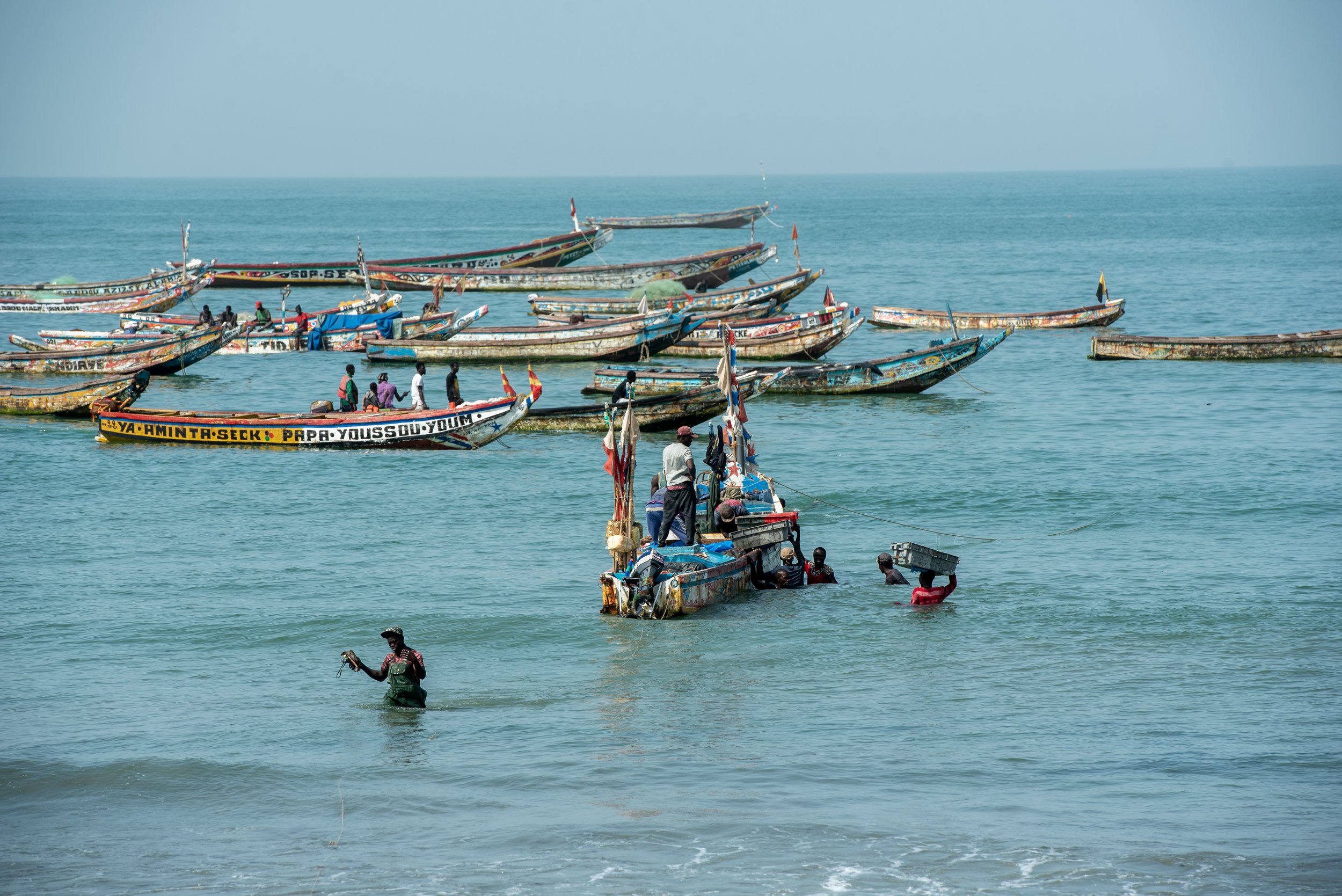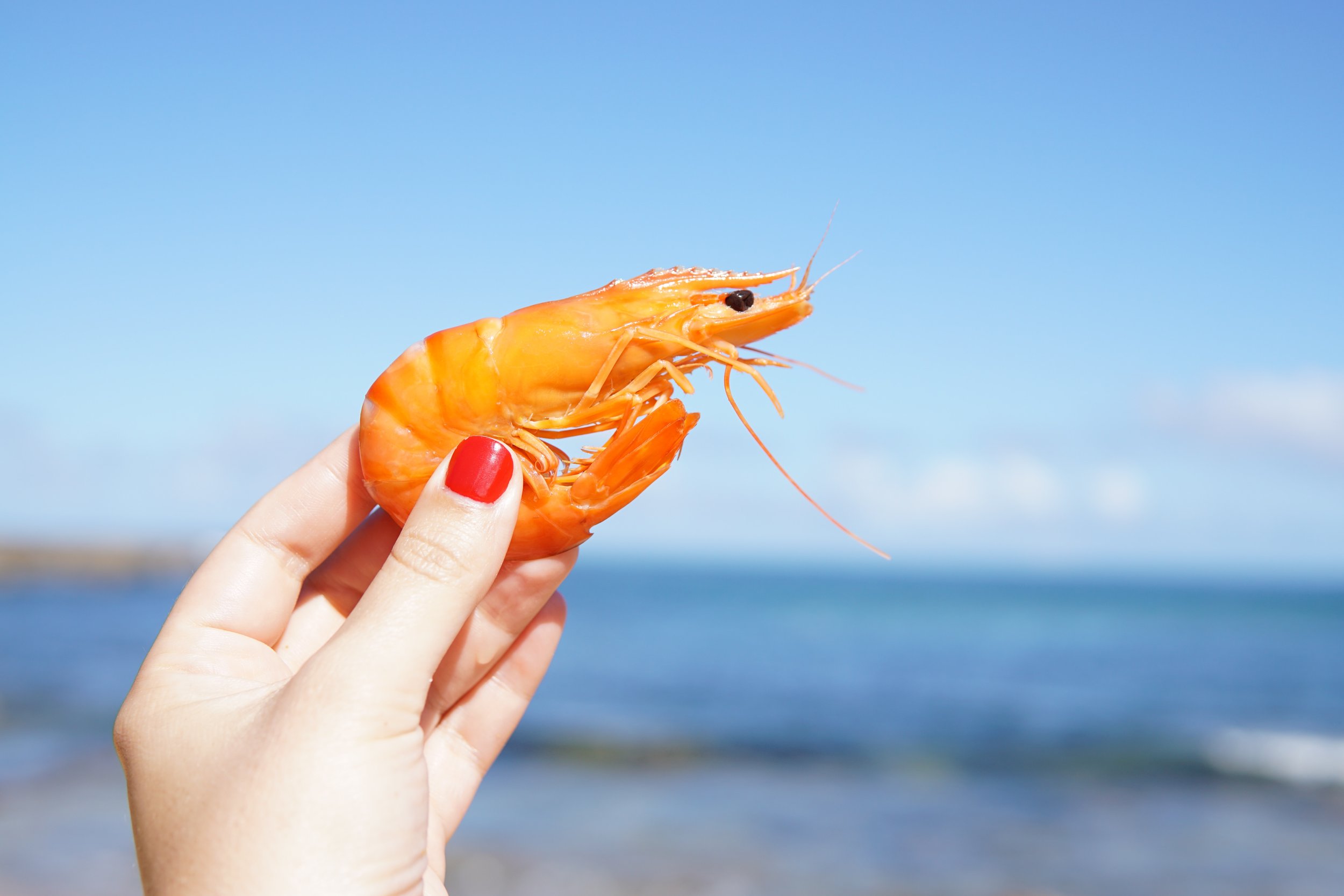Hand in hand with financial giants, environmental NGOs wield increasing influence over natural resource management in debtor nations, undermining their sovereignty. The author warns against the rising financialization of conservation and calls for safeguarding the rights of local populations from the expanding influence of US financial interests.
Small-scale fishers should be at the centre of the European Oceans Pact
The EU should guarantee rights-based and equitable decision-making processes about ocean uses, ensuring the protection of the most vulnerable facing more powerful blue economy industries. Taking into account the role of artisanal fisheries in food security and poverty eradication in developing countries, the EU should also support SSF and sustainable fisheries management in its ocean partnership with African countries.
Liberian fishers are essential for food security: Investing in them must be the cornerstone of any EU-Liberia relation
SSF are threatened by competition from foreign industrial fleets, declining fisheries resources, and management measures that undermine its sustainable development. While EU-funded projects aim to address these issues by promoting sustainable fisheries governance, structural challenges, including inadequate enforcement of the Inshore Exclusion Zone (IEZ), remain.
EU-Mauritania SFPA – Joint Committee ahead: small pelagic fish goes under the spotlight
The Joint Committee of the EU-Mauritania SFPA will meet in Nouakchott from 4 to 6 December 2024. In this article, the author makes a number of recommendations in the light of the conclusions of the Fishery Committee for the Eastern Central Atlantic (CECAF). In its latest report, CECAF described the catastrophic situation of shared stocks of small pelagics and recommended a substantial and immediate reduction in fishing effort of 60% for flat and round sardinella.
EU-Guinea-Bissau SFPA: progress for the artisanal sector, but European-owned vessels slip through the net
Although the protocol does not allow European fleets to fish for small pelagics because they are overexploited, at least 4 European vessels have reportedly reflagged to Guinea-Bissau and are fishing for these species in the region, jeopardising the region's food security and competing with small-scale fisheries.
A CFP external dimension fit for the future: more focus on good governance, less on paying access rights for EU fleets
The author makes 4 recommendations to make the external dimension of the CFP more effective: (1) the EU should shift from access agreements to fisheries governance agreements, while (2) continuing to support informed participation of stakeholders in third countries; (3) it should also ensure that all vessels of EU origin, including those reflagged, abide by sustainability standards; and (4) it should actively engage, at international level, to promote transparent, fair, and sustainable access arrangements applicable to all fleets of foreign origin fishing in developing countries.
The Gambia-EU Sustainable Fisheries Partnership Agreement negotiations: Questions arising
With Senegal’s yellow card, fisheries agreement negotiations between the EU and Senegal are at a standstill. Meanwhile, the EU will negotiate the renewal of its SFPA with The Gambia, whose waters are bordered on both sides by Senegal’s. How would access to the Gambian waters be used by EU fleets, at a time when they may be barred from Senegal waters?
Yellow card Senegal: the fight against IUU fishing must also be waged in the coastal zone
At a time when the fisheries agreement is being renegotiated, Senegal is initiating a formal dialogue with the EU on the fight against IUU fishing. As part of this dialogue, the European Union has a responsibility to improve controls on vessels of European origin, and to impose heavy penalties when they fail to comply with the rules.
São Tomé and Príncipe to develop offshore artisanal fisheries. Will the EU’s SFPA help?
In this article, the author delves into the impacts of climate change and other challenges for São Tomé and Príncipe (STP) small-scale fishing communities. To develop the sector, the government is looking to develop offshore artisanal fishing. The author examines the factors that need to be considered for the upcoming renewal of the protocol of the EU-STP Sustainable Fisheries Partnership Agreement (SFPA).
Will fishers be sidelined, once again, at the UN Ocean Conference?
The best way EU Sustainable Fisheries Partnership Agreements contribute to food security is by protecting and promoting artisanal fisheries
Removing obstacles to co-management of West African artisanal fisheries
West Africa has pioneered several decades of artisanal fisheries management reform. Yet there are still major obstacles to co-management: a lack of political will reflected in low budgetary allocations; inadequate and poorly targeted support for fisher organizations; poorly defined roles and responsibilities of fishers in co-management; lack of enforcement of inshore exclusive zones; and inadequate defense of human rights and particularly the important role of women.
West Africa: The EU should promote human consumption over the production of fishmeal and fish oil
JOINT LETTER: 11 African artisanal fisheries organisations and development NGOs send a letter to Commissioners Virginius Sinkevicius and Jutta Urpilainen asking them to use the crucial voice of the EU through Sustainable Fisheries Partnership Agreements and the EU-Africa partnership to address the impending food crisis in the West African region linked to the fishmeal and fishoil production.
The role of artisanal fishing “exclusive” zones in preferential access to resources
This article analyses a series of studies jointly commissioned by CAOPA and CFFA on areas reserved to artisanal fisheries in several African countries. The author sheds light on common challenges for protecting small-scale fishers access and the pressing need for better developing co-management in coastal fisheries, and looks into how can the EU support protection of small-scale fishers’ access to resources.
‘It takes two to tango’ – EU fishing partnerships agreements must become more attractive to partner countries
The Commission’s SFPA evaluation concludes that they are“fit for purpose” and identifies areas for improvement in the implementation of the governance framework. Most of these areas are under the responsibility of the partner country, which suggests that there is a lack of commitment from some partner countries to make these fishing agreements a success.
EU-Senegal fisheries partnership: transparency is essential at all levels
In a contribution sent to the European Commission, co-signed with 8 other civil society and environmental organisations, we highlight the most important points to be taken into account for the renewal of the protocol, to ensure that the fishing agreement has a positive impact for small-scale coastal fishing communities.
FAO Sub-Committee on Fish Trade: The role of women in fisheries must be better recognised
The EU must develop fisheries specific due diligence legislation
The Spanish presidency of the EU is seeking to finalise the negotiations for a corporate accountability directive before the end of December 2023, which would see European based companies take some degree of responsibility for what they do in third countries. We look at some key issues at stake for the third countries small scale fishers.
Transparency, protected and equitable access to resources: the stakes of the EU-Mauritius agreement for small-scale fisheries
The European Parliament is set to give its consent at the end of May to the new Sustainable Fisheries Partnership Agreement (SFPA) between the EU and Mauritius. This article outlines the challenges that Mauritian artisanal fisheries face and highlights the priorities for sectoral support in the future SFPA protocol to support this sector.
Potential negotiations in sight for an EU-Angola fisheries agreement: How would existing joint ventures be treated?
The European Commission has decided to assess the merits of concluding a Sustainable Fisheries Partnership Agreement (SFPA) with the Republic of Angola. For a dialogue on sustainable fisheries in Angola, the EU will need to address the issue of total fishing effort and the framework within which joint ventures operate, as well as revising the presence of European-owned vessels with a bad track record.





















